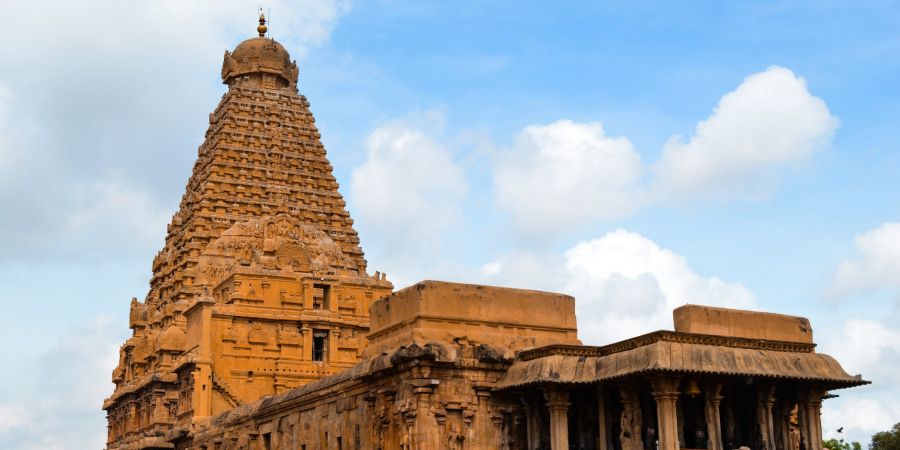

Tamil Nadu's history is incredibly old and dates back thousands of years. The Dravidians of Tamil Nadu are thought to have originally come from the early Indus Valley immigrants and traveled south after the arrival of the Aryans around 1500 BC. However, Tamil Nadu's human civilization can only be traced back to the fourth century BC. Numerous references to the social, economic, and cultural life of people in this region may be found in the Sangam literature. Even before the beginning of the Christian period, the Tamil Country was on the maritime map of the world due to its close proximity to the sea. The Tamils established trading ties with ancient Egypt, Greece, and Rome over time.
Tamilnadu continued to be a point of contention for political domination among several dynasties because of its geographic and strategic location. The Cholas, Cheras, and Pandyas governed the Tamil nation before the arrival of Christianity. Over the centuries, these three dynasties' territories saw several changes. Later, other dynasties, including the Chalukyas and Pallavas, ascended to prominence. Each of these dynasties continued to fight for control of the territory through political conflicts. The most notable feature of these kings was their sponsorship of the arts, crafts, literature, and architecture. The majority of these kings consistently supported a range of artistic endeavours that hastened the development of Dravidian culture. The illustrious history of literature, music, and dance that the Tamil kings so skillfully maintained endures today.
In the first to fourth centuries, Tamil Nadu was dominated by the early Cholas. The current Thanjavur and Tiruchirapalli districts were under Chola dominion. At its height, the Chola rulers spanned hundreds of kilometres over the northern area and as far south as Ceylon (modern-day Sri Lanka). Nearly every Chola King was an excellent temple builder. A well-known illustration of the exquisite architecture of the Chola monarchy is the Brahadeswarer's Temple in Tanjore. The Pallavas rose to dominance in the latter half of the 4th century and ruled the south for an additional 400 years. With Kanchipuram as their home base, they controlled a considerable chunk of Tamil Nadu. During the Pallava era, Dravidian architecture was at its height.
Under Rajaraja Chola and his son Rajendra Chola, the Cholas once more became a significant political force in the ninth century. The Chola Empire included sections of West Bengal and the central Indian kingdoms of Orissa. Rajendra Chola went above and beyond, using his fleet of ships to occupy the islands of Andaman and Nicobar, Lakshadweep, Java, Sumatra, Malaya, and the islands of Pegu. The Pandyas reemerged as a powerful force in the early 14th century when the Chola hegemony began to wane in the latter quarter of the thirteenth century. However, the rise of the Pallava was short-lived because they were defeated by Alauddin Khilji at the start of the 14th century. The city of Madurai was utterly devastated and pillaged. The Chola and Pandya dynasties were devastated by the invasion, and later.
The conflict between the colonial powers, in which the British prevailed, was also witnessed in Tamil Nadu. By fighting alongside other European countries, the British drove the Dutch out of India and reduced the French possessions there to Pondicherry. In addition, the British fought four wars with Hyder Ali and then his son Tipu Sultan, which ultimately led to their control of southern India. The Madras Presidency was created by the British from south India.
In Tamil Nadu, a nationalist movement first emerged in the latter half of the eighteenth century. In Tamil Nadu, the anti-colonial sentiment dates back to Vellore in 1806. The Madras Presidency, which included what is now Tamil Nadu, coastal Andhra Pradesh, northern Kerala, and the southwest coast of Karnataka, formed Madras State after India gained independence in 1947. Later, the state was split along linguistic lines. The name Madras was changed to Tamil Nadu in 1968.
